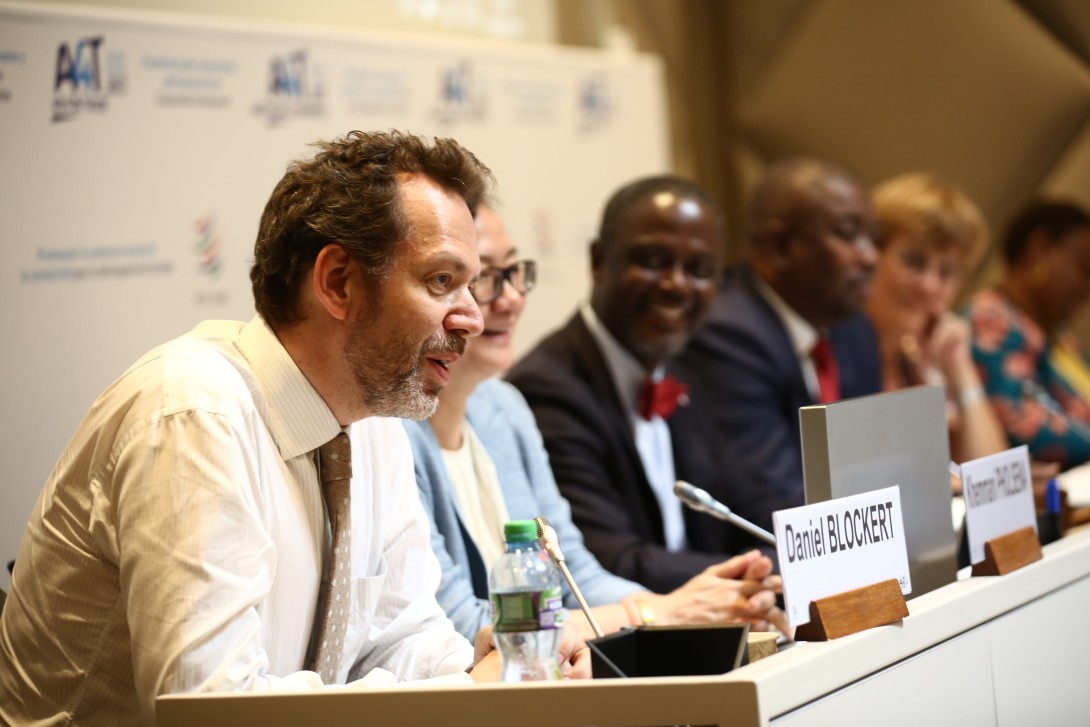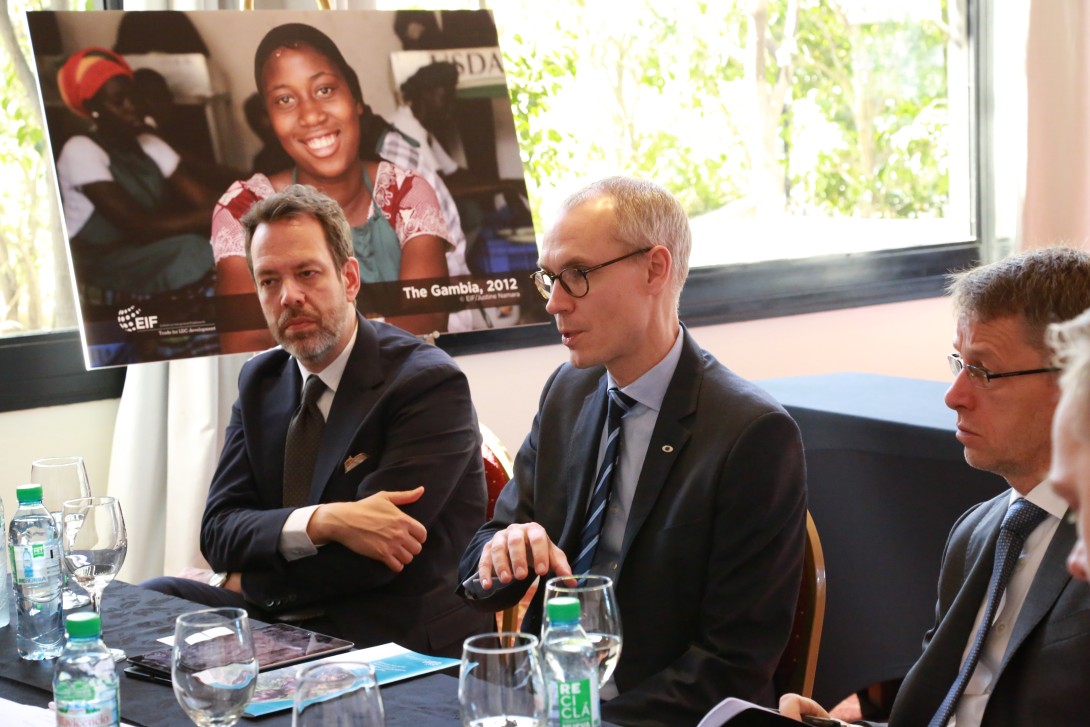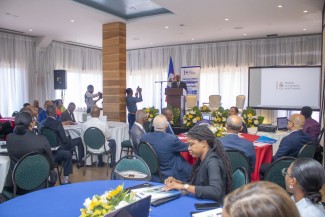Ahead of his departure from Geneva, Ambassador to the Permanent Mission of Sweden to the WTO and EIF Steering Committee Chair Daniel Blockert speaks of key sectors for impact in Least Developed Countries (LDCs) and the importance of sustainable solutions.
How do you see the current trade situation for LDCs?
If you look at the economic performance of LDCs in general at the moment it looks fairly good for many of them, several are even in the process of graduating, but at the same time we see that their share of global trade is decreasing. If you're going to build development in the longer term we know that trade can be a very powerful tool. So you have to ask: What can we do in order to actually integrate the LDCs in the global trading system better than we've done before? And we know there are plenty of things that we can do, like trade agreements, WTO deals, regulatory cooperation and so on.
But I think there is a strong case for the assistance part of it as well, meaning helping LDCs to identify where they have advantages and where they have the potential to increase trade. And that's where I see the EIF has a very strong role – first you have the diagnostic tools that help with mapping and identifying priorities, then as the next step the EIF works together with the LDCs to implement and build a platform that the LDCs can then continue to work on themselves or together with other donors.
When it comes to economic development in general what trade does is build resilience. If you're part of global value chains, if you have a trade sector that is sufficient and growing, then you become so much more resilient to whatever external or internal issues you could have.

What sector or sectors do you see having the most potential for impact?
One thing I think the EIF has done very well and will continue to do is on gender. That is a strong priority for me not only as Chair of the EIF Steering Committee but also of course as a Swede because it’s a strong priority for us in our work. The EIF has done several projects already where they have targeted specifically small businesses and small businesses owned by or with a large portion of women.
"Women have been confined to the informal economy for too long and here I think the EIF has a strong role to play, together with others."
Daniel Blockert
To just speak on the economics – if you get women involved especially in the LDCs where you have very vulnerable sectors it matters a lot and this is an untapped resource. Women have been confined to the informal economy for too long and here I think the EIF has a strong role to play, together with others.
One area that I would like to see even more work is related to e-commerce and the digital part of trade. In some countries you have to start on a very basic level and you will face challenges that have nothing to do whether there's broadband or not but rather if there's electricity. But nonetheless it is important for all countries, regardless of their level of development, to start thinking about how e-commerce fits into your trade policy and what kind of trade you want to have in the future.
Is there a country you'd like to highlight as making strong strides?
I think that one of the great examples not only with an EIF project but how it feeds into what we're doing in the WTO is The Gambia. Not only has the EIF work from what I understand been successful, but I also had the privilege to be a discussant at The Gambia trade policy review in January and in their report they presented a chapter on gender issues, based on their work with the EIF. This generated a lot of interest during the trade policy review, including questions from other developing countries and they wanted to know more about what The Gambia had done. And there is a policy impact here as well since there is an ongoing discussion on whether we should discuss gender in the WTO and I think it was fairly obvious from that session that, yes, we should, as The Gambia had an excellent case.
With EIF there is such a strong connection between the donors and the LDCs and not only a relationship with specific LDCs but you have a strong link with the LDCs as a group.

Speaking of engaging with LDCs as a group, the upcoming Global Forum on Inclusive Trade for LDCs will have representatives from at least 42 of the 47 LDCs together in one place. Can you comment on the inclusive trade theme for LDCs and specifically that of supporting small business?
I've been involved with development assistance in the trade area for almost 20 years and it's always been a priority to reach small business and it's always been a challenge how to do that.
"If you're going to build long-term sustainable growth, the LDCs and their small businesses have to be included."
Daniel Blockert
If you're going to build resilience, if you're going to build economic development in LDCs that is sustainable and that is not dependent on what happens in the next election or if one country goes bust or if one big investor suddenly pulls out, you will have to support small companies. They are of critical importance for the economy and not least in terms of creating jobs. One challenge is to identify and reach these small actors and I know this has been a priority for the EIF. From what I've heard there have been positive responses from small businesses in many of the EIF projects.
If you're going to build long-term sustainable growth, the LDCs and their small businesses have to be included.
Blockert will be discussing inclusive trade and the way forward as part of the Closing Ceremony at EIF’s Global Forum on Inclusive Trade for LDCs on 13-14 June 2018.
This interview has been edited and condensed for clarity.
If you would like to reuse any material published here, please let us know by sending an email to EIF Communications: eifcommunications@wto.org.


